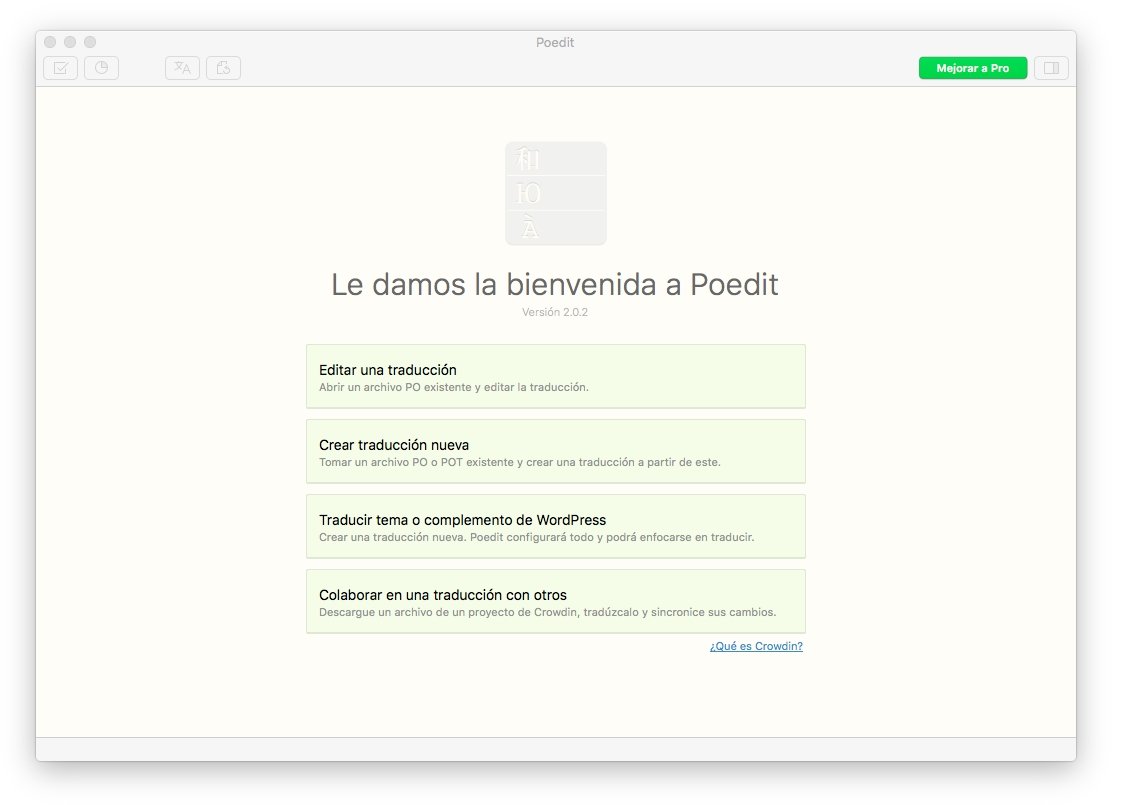Poedit 1 7 6 Translation Editor
- Poedit 1 7 6 Translation Editorial
- Poedit 1 7 6 Translation Editor Pdf
- Poedit 1 7 6 Translation Editor Free
How to Translate Using PO Files

If you usually work with.po files, poEdit, this tiny but useful application will be really good for you. PoEdit shows data in very compact way, so you'll notice at a glance the terms you will have to translate without having to search the whole document. That fact will make your translation task to be shorter, that's really important. Poedit Alternatives. Poedit is described as 'The best editor for translating apps and sites (that use gettext). Easy to use' and is a popular app in the Education & Reference category. There are more than 25 alternatives to Poedit for a variety of platforms, including the Web, Windows, Linux, Mac and SaaS. I'm looking for a.po/.mo editor. I am using gettext for the translation files but don't really like Poedit. It has to run on Windows Vista and it would be even better if it was built into Visual Studio 2008 so I could develop and translate. I really want something that helps me translate and makes translation easier.
This is a very simple guide to help translators with little computer knowledge do their work using the Gettext PO file format. It assumes that the coordinator will complete strings such as the footnotes.
Guide to Translating Using PO Files
1. The first step is to install a specific program to edit .po files; for example gTranslator, Kbabel, Poedit, among others. All these programs work more or less in the same way. In this guide we will use Poedit as an example.

2. Download the template that contains the last version of the original page in English. This file is called POT (PO Template). You will find it in the /po/ subdirectory, which is located immediately after the directory that contains the page you want to translate. For example, if the page is in
you add /po/ after /gnu/, like this:
And there you will find:
3. Rename about-gnu.pot to about-gnu.es.po.
4. Open about-gnu.es.po with Poedit. Then go to Catalog > Settings and fill in the fields as follows:
Save by clicking OK.
5. Select View > Comments and View > Automatic Comments. That way, in the lower right corner of the window you will see any instructions present in the English HTML page that are useful for translators.
6. In the main window of Poedit, you will see that all strings are in English (“strings” are lines of text, such as titles and paragraphs). One by one, you start translating those strings.
Links. You will see that all links are in HTML format, like this:
In all links, what you need to translate is only the text that appears between “>” and “</a>”. Thus, in the example above, you only need to translate the sentence “Other historical and general articles about GNU” and leave the rest untouched. The best way to do this is to copy the complete original link, paste it in your translation, and then replace “Other historical and general articles about GNU” with its translation in Spanish.
Quotation marks. Quotation marks in English are: “ ”. Replace them with the Spanish quotation marks: « ». In the Spanish keyboard, you get them by doing AltGr+z and AltGr+x.
- Foreign and emphatic words. Foreign words in the Spanish text are marked like this:
<cite>foreign word</cite>. For emphasis, use<em>emphasized word</em>.
7. The following strings are special:
- *GNUN-SLOT: TRANSLATOR'S NOTES*
Unless we have a translation note, this string is 'translated' with a blank space; that is, press the space bar once. (see XXX for instructions on how to put translation notes).
- *GNUN-SLOT: TRANSLATOR'S CREDITS*
Do not translate.
- Copyright © 2012 Free Software Foundation, Inc.
Copy and paste verbatim.
8. Do not translate the following strings:
Please send general FSF & GNU inquiries to <a href='mailto:gnu@gnu.org'><gnu@gnu.org></a>. There are also <a href='/contact/'>other ways to contact</a> the FSF.
Please send broken links and other corrections or suggestions to <a href='mailto:webmasters@gnu.org'><webmasters@gnu.org>/a>.
Please see the <a href='/server/standards/README.translations.html'>Translations README</a> for information on coordinating and submitting translations of this article.
This page is licensed under a <a rel='license' href='http://creativecommons.org/licenses/by-nd/3.0/us/'> Creative Commons Attribution-NoDerivs 3.0 United States License</a>.
Updated:
Poedit 1 7 6 Translation Editorial
9. When you are finished, close Poedit and open about-gnu.es.po with a normal text editor, for example Gedit. Then edit the header as follows:
Poedit 1 7 6 Translation Editor Pdf
Replace:
# LANGUAGE translation of http://www.gnu.org/gnu/about-gnu.html
with:
# Spanish translation of http://www.gnu.org/gnu/about-gnu.htmlReplace the YEAR in:
# Copyright (C) YEAR Free Software Foundation, Inc.
with the year the translation was made (for example, 2012):
#Copyright (C) 2012 Free Software Foundation, Inc.Leave the following comment as is:
# This file is distributed under the same license as the original article.Replace the following comment:
# FIRST AUTHOR <EMAIL@ADDRESS>, YEAR.
with your own data and the year you made the translation:
# Your Name <your_address@domain.com>, 2012.
Poedit 1 7 6 Translation Editor Free
10. Leave the following as is: